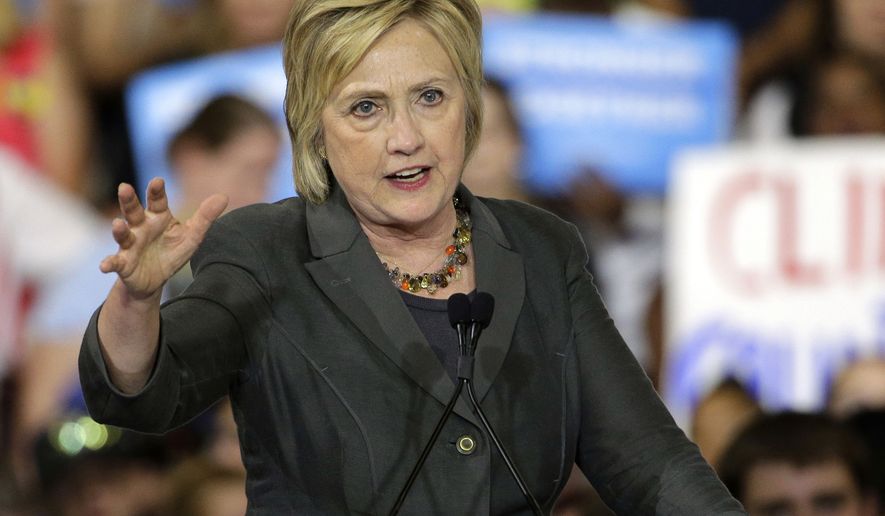Presumptive GOP presidential nominee Donald Trump could return to the campaign trail next week more optimistic about his chances of winning the White House following Britain’s stunning exit from the European Union.
Analysts say the grievances that helped fuel the Brexit vote have also helped given rise to Mr. Trump on the other side of the Atlantic and could carry warning signs for Hillary Clinton four months out from the 2016 presidential election.
“There are similarities between the Brexit and Trump voters,” said Darrell M. West, director of Governance Studies at the Brookings Institution. “Both draw from lower educated people who worry about foreign competition and immigration.
“Clinton should be worried because these nationalist tendencies threaten her electoral success,” Mr. West said. “She has to be careful not to be labeled as a candidate of the status quo.”
As is the case with the presidential race, Britain’s referendum balled together issues of nationalism, immigration, globalization and distrust of elected leaders. It passed by a 52 percent to 48 percent margin with strong support from less educated and older voters, and those living in small towns and rural areas.
Mr. Trump’s base of electoral support has had a similar profile.
“Such demographics don’t bode well for Clinton in the U.S.,” said David Yepsen, director of the Paul Simon Public Policy Institute at Southern Illinois University Carbondale.
The Clinton camp dismissed the idea that Britain’s abandonment of the EU could be a bad omen, telling reporters the former secretary of state is in tune with working-class Americans and understands that many of them feel as if they have not gotten a fair shake.
“Secretary Clinton has spent the last year traveling around the country talking to people from all walks of life and she has heard and felt the sense of frustration … that the economy is not working for everyone,” said Jake Sullivan, a senior policy adviser in the Clinton camp.
Mr. Trump, meanwhile, said the political movement that led to the vote in Britain reminds him of the forces at play in the presidential contest.
“I think I see a big parallel,” Mr. Trump said. “People want to take their country back.”
The Brexit referendum helped shift attention away from Mr. Trump’s recent struggles and his decision to take a detour from campaigning and raising money in the United States to travel to Scotland to tend to part of his business empire.
The trip comes less than four weeks away from the Republican National Convention in Cleveland where he is scheduled to be crowned as the party’s standard-bearer.
Mr. Trump this week fired his campaign manager and filed a campaign finance report the same day that showed he closed out the month of May with $40 million less in the bank than Mrs. Clinton. He also has been reeling from controversial comments he made about a federal judge, his proposed Muslim ban and a last-ditch effort to steer the nomination away from him at the convention.
The latest Real Clear Politics average of polls shows that Mrs. Clinton has extended her lead over Mr. Trump to nearly 6 percentage points.
Analysts, though, warned that Mrs. Clinton should not put too much trust in the surveys following the vote in Britain, where many handicappers and pollsters failed to predict the outcome and how late-deciding voters would break against the status quo.
Mr. Yepsen said it is clear that pollsters relied on flawed turnout models and said it raises questions about whether “polling in the U.S. may be understating Donald Trump’s support.”
“It’s not cool or acceptable for many people to say they agree with Trump so they may not be willing to tell pollsters that,” he said. “But when they get into the voting booth they vote for Trump. Pollsters were are always worried about getting their turnout models right and I imagine they are especially worried today.”
• Seth McLaughlin can be reached at smclaughlin@washingtontimes.com.




Please read our comment policy before commenting.